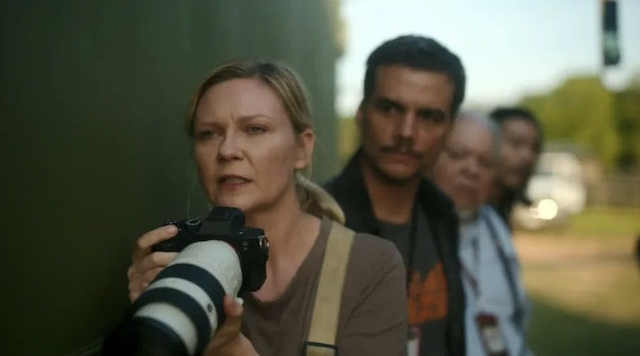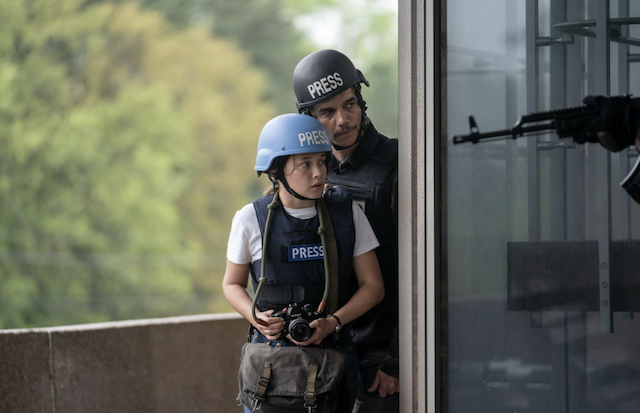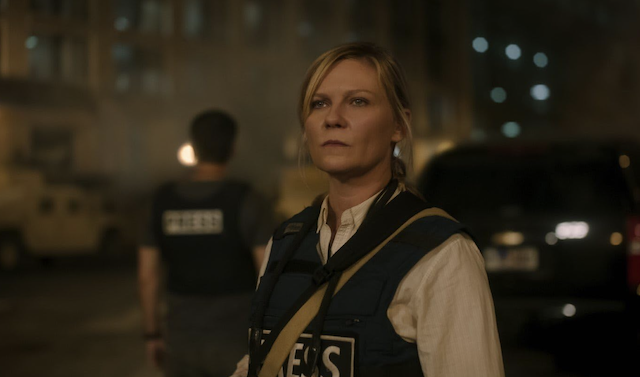
In his previous three movies as a director, Alex Garland has demonstrated the courage to bring the genre he picked almost to its extreme consequences, delivering stunning, contemporary nightmares capable of insinuating under the viewer’s skin. Ex Machina, Annihilation, and particularly Men were developed through solid stories, complex characters, and the vision of a cinematic universe presented with precision and coherence. All these elements are way less effective in his fourth Civil War, with the result that we can experience it as a quite decent movie, but at the same time leave the theater with the bitter feeling of what it could have been if realized with the sharpness of the other three.
The first issue that Civil War encounters is most likely the setting itself: this time Garland doesn’t drift away into a fantastic or terrifying world but chooses instead to get closer to the reality of our times, showing a slightly futuristic America severely hurt by an internal conflict caused by a far-right President (Nick Offerman) who wants to rule the Country like a tyrant. The main characters of Civil War are two reporters and two photographers who embark on a journey in the heart of the war zone to reach Washington D.C. and interview the President himself.
Garland sets a context that wants to offer a social-political commentary on what the United States is going through in our days but hasn’t the courage to dig deeper in his own “universe” to make the movie a true, effective dystopian mirror of today. Once the setting is prepared, unfortunately, it seems to remain way too in the background to result in some way effective. Instead, the director/screenwriter chooses to focus entirely on the reporters and their relationships, developing characters who are often rhetorical, seldom original, and in at least a couple of sequences pretty unbelievable.

Garland shows how good as a director he has become, hiding behind the excellent aesthetic of his movie the fact that he picked the easiest way to tell this story, making it a melodrama lacking the strength of truly questioning what’s going on today in the Country.
The relationship between the famous and cynic war photographer Lee (Kirsten Dunst) and the young and idealistic wannabe Jessie (Cailee Spaeny) is the main engine in the screenplay, developed through a series of ideas and plot twists that don’t strike as very original but in the end work to bring the story to the showdown. This is where Civil War becomes incredibly anti-climatic: while in a couple of action sequences, the audience can experience the tension and the violence of the war, in the last fifteen minutes Garland exceeds in a series of fights that are surprisingly less thrilling, including a final sequence which delivers a grotesque-dark comedy tone honestly quite pointless.
Civil War looks like that kind of project incredibly appealing and provocative on the page, but then little by little becoming more difficult to handle when it comes to translating it into a real movie. Garland plays constantly with the blurry areas between realism and sci-fi but in the end, he seems pretty uncertain about what he wants to talk about. What he has delivered is a movie that works on the surface but lacks depth, wasting the precious chance of making a shocking warning about what the United States could face in the near, too near future…

Rate: C
Check out more Adriano’s articles.
Here’s the trailer of the film.

